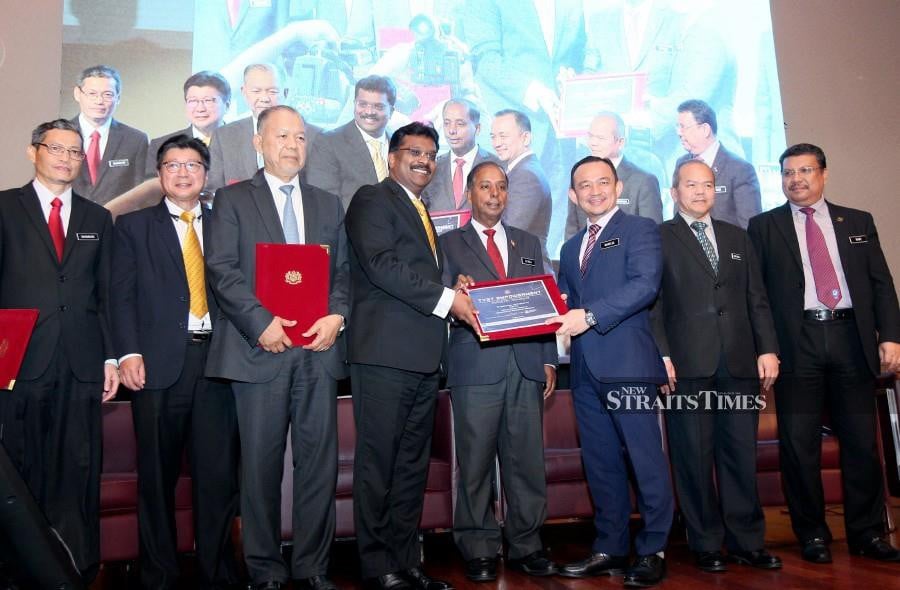
PUTRAJAYA: A National Technical and Vocational Education and Training (TVET) Coordinating Body will be established to combine various sectors into a single system.
Education Minister Dr Maszlee Malik said the body will be established to make sure that TVET, in the future, will be seen as a single entity.
“This is in line with the government’s hopes to make TVET a mainstream choice, instead of an alternative,” he said at the launch of the National TVET Campaign, here, today.
Also present at the event was Human Resources Minister M. Kulasegaran.
Maszlee said the establishment of the body and its objectives will be announced later.
He said the establishment of the body was among five cores of TVET revolution which will help create a skilled workforce by 2030.
“We will be focusing on a financial model to make sure funds are sufficient for TVET, the Shared Ownership Model, strengthening TVET Certification and a National Singular TVET Brand,” he said.
He said the five cores were the way forward and they will provide solutions to all issues pertaining to TVET.
“Among the issues are accreditation, lack of facilities and the TVET system. We are confident that all these problems can be addressed.”
Maszlee said that in order for TVET to be further empowered, a change of mindset was needed.
“We have to involve more industries to strengthen dual-training programmes. We need to shift from industry participation to industry partnership before it can eventually become an industry-led TVET,” he said.
On Aug 14, the Technical and Vocational Education and Training Empowerment Cabinet Committee (JKKPTVET) was set up as the government’s commitment to strengthen coordination and cooperation between ministries and stakeholders in the TVET system.
JKKPTVET comprised eight ministers, namely human resources, youth and sports, works, rural development, entrepreneur development, agriculture and agro-based industry, domestic trade and consumer affairs and education.
Present were JKKPTVET technical chairman Tan Sri Soh Thian Lai and Human Resources Minister M. Kula Segaran. Soh said based on surveys, the main issues and challenges for TVET education included community perception, where people saw it as having limited job opportunities.
“TVET providers also operate in silos, resulting in overlapping courses and creating confusion for students and employers.”
“It is the government’s policy to raise the level of skilled workforce to 35 per cent by 2020. To do so, we need to increase TVET student enrolment to 225,000 by 2020.”
The committee has held six townhalls, five workshops and numerous engagements to strategise the way forward for TVET.
“Based on a series of townhalls, engagements and sessions to support the TVET Empowerment Plan, 20 strategies and 15 recommendations have been proposed based on five pillars, namely governance, funding, industry, quality and branding,”
He also said some industry-led TVET collaborations remain as models for cooperation between the ministry and industry.
They are the FMM–Mida–MOE Apprentice programme, PSDC-Penang Free Trade Zone Industries, Langkawi Tourism Academy and Malaysian Association of Hotels collaboration and Malaysian German Chamber of Commerce German Dual Vocational Training Programme.
Maszlee said he hoped that TVET institutions would work together with universities and innovation agencies to introduce new technology to re-map the institutions according to industry demand.
The National TVET campaign, which runs until November, will include the search of TVET Valued Industry Partners (VIP) and TVET Influencers. There will also be a competition for the national TVET logo and slogan.
The ministry has set seven strategies to achieve these goals.
“The first strategy is to change from ‘train and place’ to ‘place and train’ educational concept; while the second one is to introduce a co-ownership model between the government and industries for equipment technologies, expertise and innovation.
“The third strategy is to establish an industry-based centre of excellence (CoE), while the fourth strategy is about introducing the TVET Valued Industry Partners (TVET VIP) to encourage industries to empower TVET.”
The remaining three strategies involve mobilising flat mobility of expertise to ensure coordination between industries and TVET institutes; creating employment oppurtunities and a level wage to make sure TVET graduates are paid well with good career prospects; and to set up Industry-led Competency Certification Bodies.
Source: www.nst.com.my
For Malay version, you may read here
Comment: Hopefully, TVET Coordinating Body would finally be able to streamline everything into a single system. Else, it will just be another futile effort. Sad to say, Malaysia has many great blueprints & policies, but when it comes to implementation, really sucks. That’s why countries like South Korea that used to be on par with us during the 70’s are now much more advanced that us and countries that used to be behind us like Vietnam is fast catching up & gonna overtake us soon if we don’t buck up!






